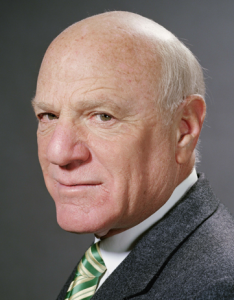The Cost of the Free Internet

The outpouring of interest in and passionate argument about IAC chairman Barry Diller’s declaration last week that the delivery of content over the Internet ‘absolutely’ will become a ‘paid system’ was instructive.

But let’s peel this back a bit – and even look at who benefits from this “not free” content. 1. The Internet is not free.
To a great number of the participants, the Internet has never been free, because they pay for access to it. $15 a month or $50 a month, whatever the price, that is what they believe they pay for access. And the content that comes to them through that access.
But that’s not all:
Everyone pays for the Internet already. We pay for the speed of the connection. Some pay email providers. Some pay for online storage. Some pay by buying products online. Some pay for rare and valuable information or to receive specific publications. We also pay with the attention we give to advertisements on our favorite sites. We pay with the time we waste sorting through all the spam we get from advertisers.
Said BillDem on 06/10/09.
Of course, a few sites, most notably the Wall Street Journal, do charge a subscription fee for content. Research houses charge by the report or by subscription. But let’s recognize the obvious here: That’s the exception the vast majority of news and information sites make their content available free and try to cover the costs via ads and sponsorship.
2. TV is not free.
Interestingly, the days of video programming being free have largely passed into history. Indeed, June 12 was kind of a demarcation date of sorts, for that. That’s when all over-the-air broadcasting of TV signals went digital. That’s when consumers had to buy equipment (converters or new TVs) to keep getting TV “for free.” Or, at long last, sign up with a cable TV or satellite TV operator to keep getting programming.
Indeed, now 90% of American households subscribe to TV. And they pay, in this case, for a combination of access and content, aka programming. Unlike Internet access providers, TV access providers pay for video programming. That’s what pays for you to see Discovery, History, USA, Fox News or other cable channels. And payments for over-the-air stations are coming.
So it’s hardly unimaginable that the Internet can move from a model of almost totally free content to almost wholly paid content. The cable operators effected the change over a quarter century. They did it by bundling the content with the access. The consumer could not separate out the costs.
3. Content costs.
You have to look no further than the cable companies’ own income statements to the Securities and Exchange Commission to see why they love Internet access more than they love TV access. It’s more profitable.
With TV, their biggest direct cost is programming. With the Internet, all they have are networking costs. Here’s how TV, Internet and phone services contribute to overhead and bottom-line profit, at Comcast and Time Warner Cable, the two biggest operators.
So, in TV, a big part of your $60 a month goes to programmers. On the Internet, all your $50 goes to the cable company.
They love it that way. Content does cost – and lowers, as you can see, the profitability of TV. If the costs go up too much, you could see cable companies getting out of the TV business.
And just concentrating on delivering video over broadband. Not surprising that Cablevision now is touting its 101 megabit per second Optimum Ultimate service.
Great for video delivery.
4. The “community” will create the content.
Over2 had it just about right in his Talkback comment. A large part of the Internet’s content will likely stay free, no matter Diller’s postulation that anything of value will become part of the paid system.
It may take time for the wrinkles to iron out, but the community can do for "free" (actually for mutual benefits to itself) what corporations have to pay big bucks to accomplish. It may have a little less polish, a little less chrome, but what corporations don't seem to understand is that the presentation isn't what attracts people and gets the to return. Overall, the content is. And if the content is good enough and the presentation bad enough, someone else will buy, rent, or steal the content and give it a better presentation. But it's still the content that is the attraction.
In effect, good enough will be good enough for a lot of people. Why interview a subject matter expert when you are a subject matter expert? Just become a producer. Work with like-minded souls to get your point or your news across at low or no cost.
It’s users who will take things in their own hands to create free content – as long as they butter their bread in some other line of work.
5. It’s journalists who need the billing system.
Stands to reason (and it's pretty well-chronicled) that professional content creators, whether they be video producers, directors and actors or wordsmiths like journalists, get paid better when there are fewer outlets. And fewer competitors.
Now there is a countless number of sites of endless variety. Competitors are anyone with a keyboard and a modicum of determination to follow a passion (well or not so well). The effects are pretty evident on the pocketbook.
Here’s a pretty good comparison of what a wordsmith could make five years ago in the print world – and today in the web world.
So the wallet has been whacked to one-sixth of its prior level. And, interestingly, for that 16.7 cents a word, down from $1, there is not just words that have to be created. The author very often has to be the copy editor, headline writer, photographer, search engine optimizer and more. There are links to find and embed, graphics to produce, traffic to generate.
Which leads to:
6. Be wary of the result.
The Internet is a machine. The way Google makes its money is by watching the clicks, charging advertisers accordingly and attaching the payments to … words. In little boxes. By the sides of the content Internet users say they actually want to read.
The same approach, though, is happening with the production of that content, as well.
At a lot of sites -- ZDNet not excluded – a logical payment mechanism is to pay the writer for the amount of viewership generated by an article. So if you get 10,000 page views, great. Twenty thousand, better. Fifty thousand? Super.
And what’s the payoff, under Diller’s one-click system? As nate1680 said,
Premium content page five cents?... click.
10,000 hits later writer makes 250$ per article.
Actually, that would be $500. But there’s one of the rubs. You as a reader/viewer/consumer of Internet content now also have to be a copy editor and fact checker. You may need to check the math (and some of the dates, times, assertions, etc.).
You also need to check the motivations. Over time, you’re going to see a lot less research and writing on stuff that just seems, well, important, new or interesting, from an author’s standpoint. Because that won’t matter.
What will matter is what the audience thinks. The author has to try and define in advance of writing or researching what the audience might think or care about and play to it. Thus, you’ll see a gravitation toward stories that provoke or that talk about big names. In technology, that will mean more stories about Google, Microsoft, Apple – brands like that generate page views. Hillcrest Labs? Helpstream? Not so much.
That may be valid and a continuation of normal “news judgment.’’ But it’s not so clear any more.
Content wants to be free. I want to be paid. So, if I go back to the same well again, is it for the benefit of the reader? Or my pocketbook?
You’ll never know. I’ll never be sure.
But, when content gets counted by the click, greed inevitably will enter in.
So give Barry his due.
There will be a system of payment.
Just be ready to deal with it, if or when it’s hidden from view.
Yes, even on the Internet, right now, there is no such thing as content that comes without any cost.